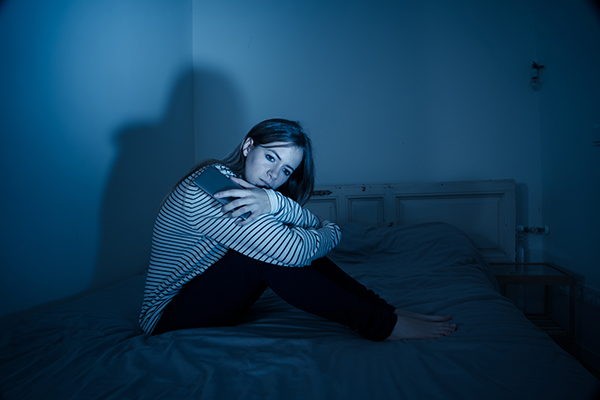Insomnia is a sleep disorder that causes a person to either have trouble falling asleep and staying asleep. It can either be acute or chronic. Acute insomnia can last 1 night to a few weeks, and chronic insomnia generally happens 3 nights per week for 3 months or more. Sleep problems that are unrelated to any other health condition are called primary insomnia. Sleep disturbances caused by a health condition, pain, medication, or substance abuse are called secondary insomnia.
Can Opioids Cause Insomnia?
There are two types of insomnia the first one can be caused by stress, your environment, a change in work schedule, or jet lag can cause primary insomnia. In addition to that, there is also one that is caused by depression, anxiety, medications, pain, caffeine or tobacco, other substances, hyperthyroidism, or other endocrine problems, sleep apnea, or restless leg syndrome which is called secondary insomnia. We know that there is a strong connection between sleep and substance use disorders. This connection is quite complex and can go in both directions. Substance abuse can cause sleep disorders, and sleep disorders can increase the likelihood of substance abuse.
More About Opioids Related to Insomnia
Opioids can hurt many different aspects of a person’s life. For example, they can cause problems with sleep and affect sleep quality, falling asleep, and even conditions like sleep apnea. Opioids can cause four different types of sleep problems: Insomnia, parasomnia, daytime sleepiness, and a combination of the above. Opioid-induced sleep disorder may be occurring if you take opioids regularly for pain and are experiencing any of the sleep problems listed above.
Sleep Dysfunction as a Core Feature of Opioid Use Disorder and Recovery
Those with opioid use disorder are even more likely to experience sleep issues. The National Institutes of Health “Sleep Dysfunction as a Core Feature of Opioid Use Disorder and Recovery” states that
Over 75 percent of people with opioid use disorder (OUD) have sleep problems, such as having irregular sleep schedules and not sleeping well or long enough. Sleep affects many mechanisms involved in opioid misuse, including reward and reinforcement, mood regulation, stress, risk-taking behavior, and pain perception. Sleep deficiency has many effects beyond sleepiness, including alteration of attention, emotion, and memory processes at the cellular level. Getting inadequate sleep reduces the ability of brain cells to function properly and makes coping with the stress of OUD more difficult. It is important to learn whether sleep deficiency contributes to the overuse of opioids and addiction, and how individuals respond to medication treatments to overcome addiction. (NIH)
Much like the correlation between substance use disorder and sleep, and the fact that it is bidirectional, so is the correlation between opioid use disorder and sleep.
How Do Opioids Affect Sleep?
Opioids disrupt REM (rapid eye movement) sleep. Adults get between 20 and 25 percent of REM sleep a night. Disrupted REM sleep can affect the ability to learn and retain memory. It can also increase pain and therefore perpetuate opioid use. Opioids can also disrupt Non-REM (NREM) sleep. NREM sleep occurs in three stages. Stage 1 is the lightest stage of sleep or the drowsy stage. Stage two is the light stage of sleep or the first official stage of sleep. Stage three is considered the deep sleep stage. This is the most important stage where restorative processes occur. Opioid use can affect the three and 4th stages of sleep; therefore, opioid-induced, which are the critical stages for muscle and bone tissue repair and immune system strengthening. Those with opioid use issues may experience nightmares and vivid dreams; this stage. Opioids can also cause an increase in sleep apnea issues. Sleep apnea is a condition where a person starts and stops breathing while sleeping.
Treatment for Opioid Addiction at Evoke Wellnes MA
If you or someone you love is struggling with opioid addiction, our addiction professionals are available around the clock to assist you. Evoke Wellness at Cohasset offers evidence-based treatment programs and solution-focused addiction treatment to cater to each patient’s individual needs. Our programs provide men, women, and families with comprehensive, integrated care that will lead you on the road, therefore, opioid-induced to long-lasting recovery. So give us a call today.




